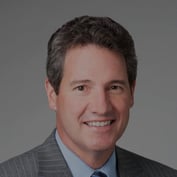What You Need to Know
- Six in 10 workers acknowledged saving less than they should have, particularly in their first five working years.
- Seventy percent of respondents said they need guidance on how to withdraw money from their retirement accounts.
- More than half of respondents were interested in having ESG investments as part of their retirement plan.
Market risk remains the chief concern of American workers more than a year into the recovery from the pandemic, according to survey results released this week by American Century Investments.
Mathew Greenwald and Associates conducted the survey in March among 1,500 full-time workers between 25 and 65 who were saving through their employer’s retirement plan.
“Market risk and longevity risk continue to be the top concerns for retirement plan participants.” American Century senior retirement strategist Glenn Dial said in a statement.
“This may explain why, when it comes to taking withdrawals, 76% would be more likely to leave their money in their 401(k) plan if given an in-plan withdrawal solution.”
Two out of three survey participants said they know how much to withdraw for living expenses, yet only 60% know how long to make their money last in retirement. Seventy percent said they need a “little bit of guidance” on how to withdraw money from their retirement accounts.
“The good news is three out of every four workers show at least some interest in holistic financial advice, which has important implications for financial professionals,” Dial said.
The survey found that more than half of respondents were interested in having environmental, social and corporate governance investments as part of their retirement plan. Millennials and Generation Xers expressed the most interest, as did participants with incomes of at least $100,000.
ESG is more attractive if investment performance is comparable, according to the results, with 65% of workers saying they would be interested in that case, compared with only 6% who said they would be interested even if performance is worse.
Expectations, Worries and Regrets
Twenty-nine percent of workers surveyed said they expect a better standard of living in retirement, yet 40% worried about running out of money. Six in 10 acknowledged that they had saved less than they should have, particularly during their first five years of employment.
Not saving more continues to be participants’ biggest life regret, a sentiment that participants expressed in American Century’s first survey in 2013, according to Dial.
“We found that 35% of workers voiced this regret, which was more important to them than doing better in their career, doing better in personal relationships or even doing enough to enjoy life,” he said. “This clearly speaks to concerns about being ready for retirement.”









 August 10, 2021 at 07:33 PM
August 10, 2021 at 07:33 PM











